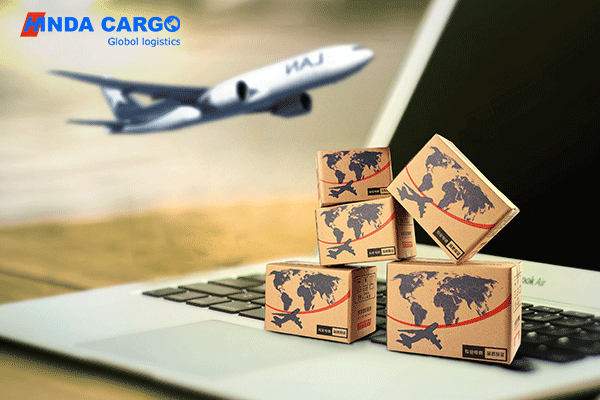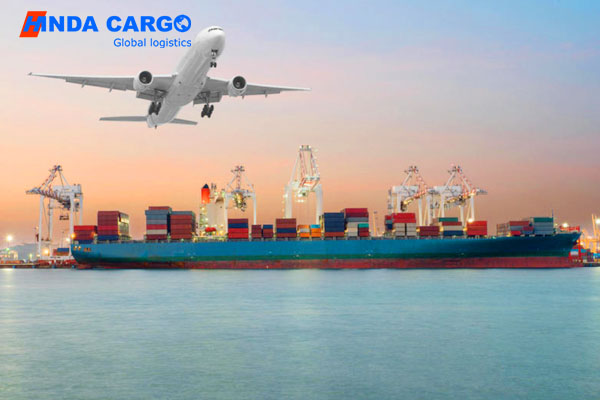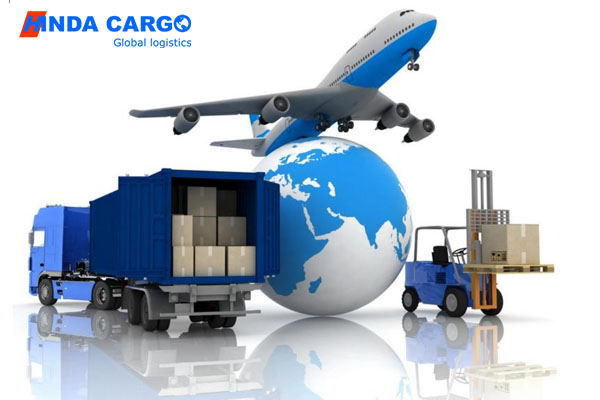What are the international trade terms for air transport?
As a fast and efficient way of freight transportation, air transport is favored by companies from all over the world. In order to ensure the smooth progress of international trade, various international trade terms for air transport have emerged.
These terms not only regulate the responsibilities and obligations of both parties to the transaction, but also provide clear guidance for the transportation and delivery of goods. This article will introduce in detail the main international trade terms for air transport in international freight and their specific meanings.

What are international trade terms?
International trade terms (Incoterms, International Commercial Terms) are standard terms for international trade issued by the International Chamber of Commerce (ICC). They clarify the responsibilities, costs and risk sharing of buyers and sellers during the transportation of goods. Since its first release in 1936, international trade terms have been widely used in global trade and have become an important tool for regulating international transactions.
What are the international trade terms for air transport?
7 major international trade terms for air transport:
1. EXW (Ex Works),
2. FCA (Free Carrier),
3. CPT (Carriage Paid To),
4. CIP (Carriage and Insurance Paid To),
5. DAT (Delivered at Terminal),
6. DAP (Delivered at Place),
7. DDP (Delivered Duty Paid).
Although international trade terms cover all modes of transport, there are some specific terms that are widely used in the field of air transport. The following are the 7 commonly used international trade terms in air transport and their specific meanings:
EXW (Ex Works):
The seller delivers the goods to the buyer at its location or other designated location to complete the delivery obligation. At this time, the buyer bears all risks and costs of the goods, including the transportation costs and responsibilities from the seller's location to the final destination.
EXW terms apply when the buyer is familiar with the seller's location and can arrange the transportation of the goods from the seller's warehouse to the destination and related matters.
FCA (Free Carrier):
The seller delivers the goods to the carrier designated by the buyer at the designated location to complete the delivery obligation. Thereafter, the buyer bears all risks and costs of the goods.
FCA terms apply when the seller needs to deliver the goods to the carrier designated by the buyer, and the carrier can be an airline, freight forwarder or other transportation service provider.
CPT (Carriage Paid To):
The seller is responsible for paying the transportation costs of the goods to the designated destination, but the risk is transferred to the buyer after the goods are delivered to the carrier.
CPT terms apply when the seller is willing to bear the transportation costs but is unwilling to bear the risks during transportation. In this case, the buyer needs to purchase cargo insurance on his own.

CIP (Carriage and Insurance Paid To):
The seller is not only responsible for paying the transportation costs of the goods to the designated destination, but also needs to purchase cargo transportation insurance, and the insurance amount should be 110% of the contract amount. The risk is transferred to the buyer when the goods are handed over to the carrier.
The CIP term is applicable when the seller is willing to bear the transportation costs and purchase insurance to ensure the safety of the goods during transportation.
DAT (Delivered at Terminal):
The seller unloads the goods at the designated destination terminal (such as airport, port, etc.) to complete the delivery obligation. Thereafter, the buyer bears all risks and costs of the goods.
The DAT term is applicable when the seller is responsible for transporting the goods to the designated terminal in the buyer's country or region and completes the delivery after unloading.
DAP (Delivered at Place):
The seller delivers the goods to the buyer at the designated place to complete the delivery obligation. Thereafter, the buyer bears all risks and costs of the goods.
The DAP term is applicable when the seller is responsible for transporting the goods to the designated place in the buyer's country or region and completes the delivery after delivery.
DDP (Delivered Duty Paid):
The seller is responsible for transporting the goods to the designated place and bears all costs, including transportation costs, insurance premiums, import duties and other taxes. Thereafter, the buyer bears all risks of the goods.
The DDP term is applicable when the seller is willing to bear all transportation and import-related costs, ensuring that the buyer does not have to deal with any import procedures and fees.

How to choose an air freight international trade term?
In actual operation, buyers and sellers should choose the appropriate international trade term according to the specific situation. Here are a few key factors to consider when choosing a term:
Transportation distance and mode of transportation:
Air transportation is usually suitable for high-value and time-sensitive goods. When choosing an international trade term, buyers and sellers should consider the transportation distance and mode of transportation of the goods. For example, EXW and FCA terms are applicable when the buyer arranges air transportation by himself, while CPT and CIP terms are applicable when the seller is responsible for transportation.
Risk sharing:
Different terms differ in risk sharing. Buyers and sellers should clarify the time point of risk transfer so that cargo insurance can be reasonably arranged. For example, the CIP term requires the seller to purchase insurance, while the CPT term gives the insurance responsibility to the buyer.
Cost sharing:
International trade terms also differ in cost sharing. Buyers and sellers should clarify the costs they each bear to avoid subsequent disputes. For example, the DDP term requires the seller to bear all transportation and import-related costs, while the DAP term passes import duties and taxes to the buyer.
Trade partnership:
The cooperative relationship and trust between the buyer and the seller are also important factors in choosing terms. If the two parties cooperate closely and have high trust, more flexible terms such as FCA or CPT can be selected. If the two parties cooperate less and have low trust, more stable terms such as CIP or DDP can be selected.

Practical application of international trade terms for air transport
In actual operation, the application of international trade terms for air transport involves not only buyers and sellers, but also multiple participants such as carriers, freight forwarders, and insurance companies. The following are several practical application cases:
Case 1: Application of EXW terms
A Chinese manufacturer signed an air export contract with a US buyer using the EXW term. According to the contract, the manufacturer will deliver the goods to the buyer at its factory. The buyer is responsible for arranging air transportation from China to the United States and bears all transportation costs and risks. The manufacturer only needs to ensure that the goods are intact when delivered at its factory.
Case 2: Application of CIP terms
A German supplier signed an air export contract with a Brazilian buyer, using the CIP terms. According to the contract, the supplier is responsible for arranging the air transportation of the goods and paying the transportation costs and insurance premiums. After the goods are handed over to the airline, the risk is transferred to the buyer. The insurance amount purchased by the supplier is 110% of the contract amount to ensure the safety of the goods during transportation.
Case 3: Application of DDP terms
A Japanese exporter signed an air export contract with an Australian buyer, using the DDP terms. According to the contract, the exporter is responsible for transporting the goods to the buyer's designated location and bears all transportation costs, import tariffs and other taxes. The buyer bears all risks of the goods after the delivery of the goods. The exporter ensures that the goods pass through customs smoothly and pays all related fees, and the buyer does not need to handle any import procedures.
Conclusion
In international freight, the international trade terms for air freight provide buyers and sellers with a clear division of responsibilities and obligations to ensure the smooth transportation of goods. By reasonably selecting and applying these terms, buyers and sellers can effectively reduce transaction risks and improve logistics efficiency.
In today's world of globalization, being familiar with and mastering international trade terms for air transport is an essential professional skill for every international trade practitioner.




